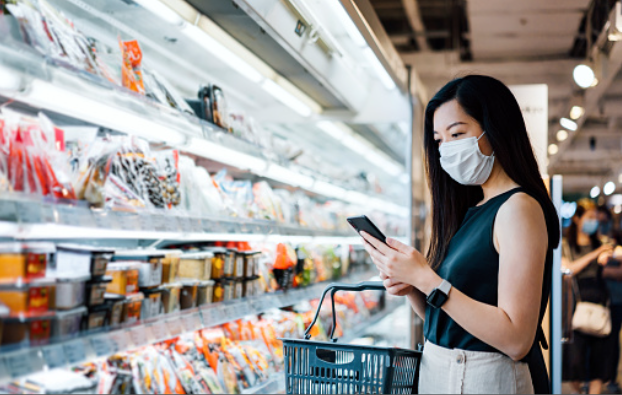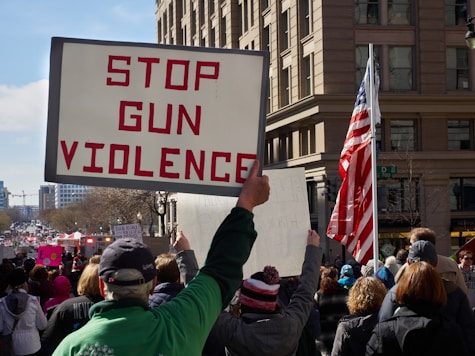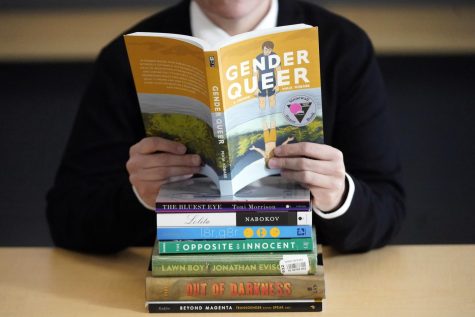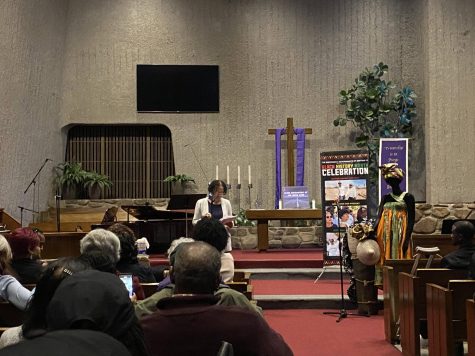Vaccinations and restrictions are the only way to get back to normalcy
In 1920, the life expectancy was just 54 years and in 1900, it was only 47 years. The advancement in technology and medicine has allowed people to extend their life expectancy far beyond the 47 years expected at the beginning of the 20 century.
Polio, chickenpox, the flu and other viruses are widely eliminated in first-world countries using vaccines. The rollout of the COVID-19 vaccine in late 2020 allowed many to receive a way to combat the disease, and some companies are now requiring it to be employed. Those who have chosen not to get the vaccine leave them at greater risk of hospitalization and/or death.
With many public businesses now operating to total capacity, people have become delusional to believe that they don’t need to wear masks anymore if they had received the vaccine. According to a study conducted by the CDC between May 1 and July 25, 2021, of 43,127 participants 10,895, were fully vaccinated, 30,801 were unvaccinated and 1,431 were partially vaccinated.
It shows that those who haven’t been vaccinated are more than six times as likely to be hospitalized.
Of a total of 2,794 hospitalizations, 350 were fully vaccinated and 2,355 were unvaccinated.
Twenty-four fully vaccinated, seven partially vaccinated and 176 unvaccinated died during the study.
According to the Mayo Clinic, 56.6 percent of the U.S. population have been fully vaccinated and 65.6 have received at least one dose of the vaccine.
Many states, cities and companies are giving people incentives to get vaccinated. Companies such as United Airlines and many hospitals are mandating that employees be fully vaccinated to keep their job. Others are mandating it so that if they get COVID-19, they can receive health benefits.
Los Angeles County recently announced that starting Dec. 5, to enter any indoor facility, it would be mandatory that customers have proof of vaccination to enter any establishments. For many, this is seen as a way to force people to get the vaccine or essentially not be able? to live their life. According to Yale Medicine, the Phizer vaccine is 91.8% effective when first administered and is 96% effective against hospitalizations; Moderna is 90% effective against COVID-19 and 95 % against having severe COVID-19; Johnson and Johnson is only 72% effective against COVID-19 and 86 effective against moderate and severe cases of COVID-19.
The upside for such strict rules against COVID-19 is that it could greatly diminish the possibilities of transmission of COVID-19. According to California COVID-19, it is mandatory to wear a mask in places such as public transportation, all healthcare settings, adult and senior care facilities, adult and senior care facilities, indoors in K-12 schools, childcare, and other youth settings, state and local correctional facilities and detention centers, homeless shelters, emergency shelters, cooling centers.
Even with the strict rules in place, it is not uncommon to see many people not wearing masks and being very relaxed about any safety put into place. To combat people who are unwilling to get the vaccine, there should be incentives for unvaccinated and perks for those vaccinated.
According to CNBC, nearly two-thirds of Americans, 63%, say they’ve been living paycheck to paycheck since the Covid-19 pandemic. About 44% of respondents say they were living beyond their means before the pandemic started and two-thirds say they regret not having more emergency savings. To incentivize people to get vaccinated, for everyone that gets vaccinated, they could be put into a lottery for free groceries for a year, pay off a mortgage or free gas for a year.
On the other hand, those who are unvaccinated should be restricted on the times that they could do things and to limit the amount of exposure they have to those who have been fully vaccinated. Those who are unvaccinated should be given a set time in the morning to get essentials every day. Having strict laws and fines could determine whether COVID-19 is eradicated or has been around for generations.
With such strict laws in place, it may become difficult for small businesses to stay profitable because they may have far fewer customers or clients. According to Business Insider, finding employees could be difficult as over 5 million people are unemployed compared to pre-pandemic numbers. For well-known, large consumer companies like Target, Walmart, and Amazon can lose customers with much of the revenue fall and hire employees willing to work.
As restrictions change and are different from state to state, COVID-19 could be in our lives forever. If not, everyone gets vaccinated. The most important thing that everyone can do is get vaccinated, wash their hands and keep away from people who put themselves at risk.

Andrew is a journalism major. This is his second year with The Chaparral, and he covers sports. Andrew's favorite sports include golf, football and motorsports....










